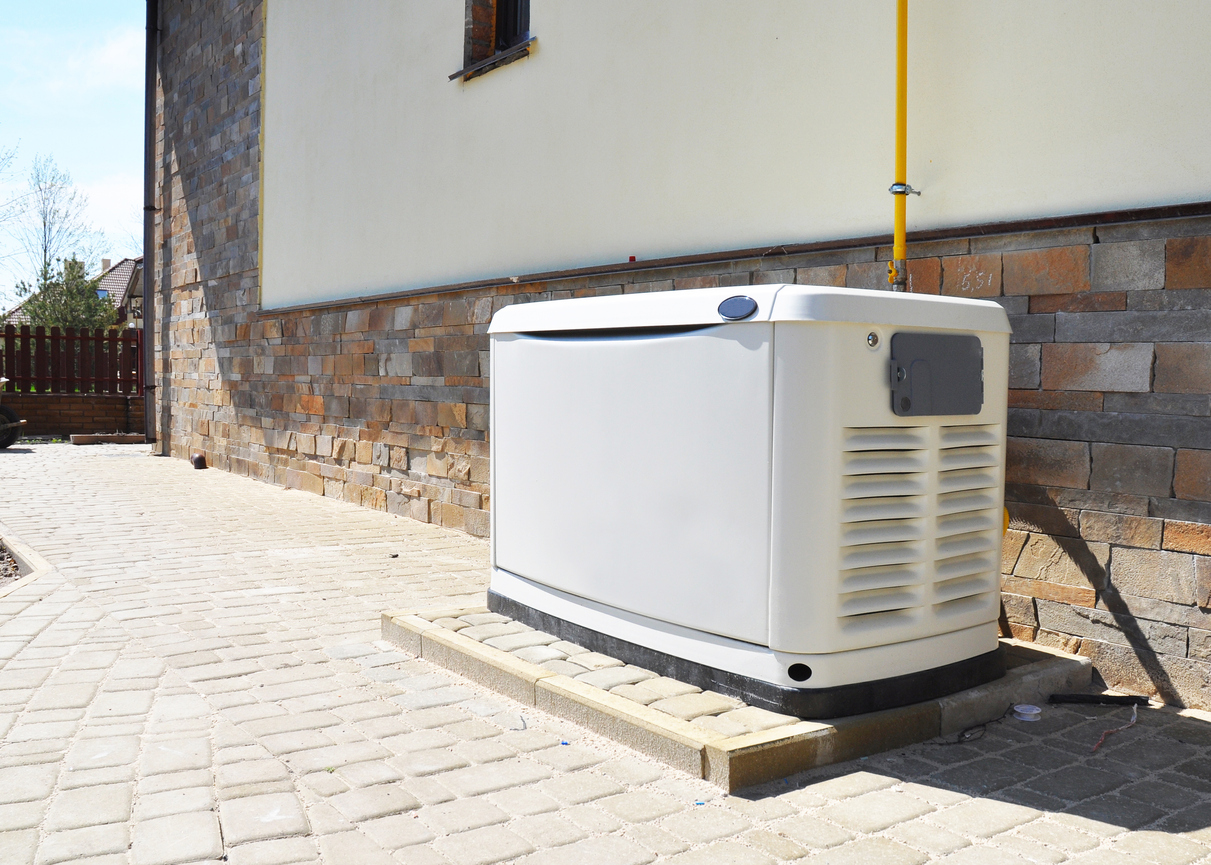
A generator is an essential investment for Delaware, New Jersey, and Pennsylvania homeowners who want to prepare for power outages caused by natural disasters or other utility disruptions. Installing a generator ensures a reliable backup power source to keep your home running smoothly during emergencies.
Many homeowners have questions about generator installation, including the time, installation process, ideal placement, and size you need. The expert electricians at Harris Plumbing, Heating, Air, & Electric are here to answer your questions.
How Long Does Generator Installation Take?
The time it takes to install a generator depends on the type you choose. A whole-house standby generator is a permanent installation that sits at the ready outside your home. Because it’s connected to your electrical panel, it comes on automatically when the power goes out, allowing you to resume your regular activities with minimal interruption. Depending on the project’s size and complexity, the installation may take several hours or even days to complete.
On the other hand, a small, gasoline-powered portable generator can be set up relatively quickly. This device is great for powering a handful of appliances and electronics. Professional installation is not required for portable generators, and setup is as easy as filling the fuel tank, plugging in appliances, and starting the generator.
What Is the Generator Installation Process Like?
The whole-house generator installation process involves several steps:
- Conduct a site inspection: We evaluate the home’s exterior, identify potential obstacles, and determine the best generator placement.
- Size the generator: Size is determined by the home’s square footage and other factors.
- Obtain any necessary permits and approvals: Some authorization may be required from local authorities, which can involve submitting plans and specifications for the installation.
- Connect the generator: We connect the generator to the home’s natural gas line or a propane tank.
- Install electrical wiring: Wiring connects from the generator to the home’s electrical panel.
- Place the generator: It must be put on a level, stable foundation, which may involve pouring a concrete slab or installing a prefabricated base.
- Install a transfer switch: Safely routing power to the electrical panel allows the generator to turn on automatically during an outage.
- Perform final testing: This ensures the generator is functional, which may involve running the generator for a short time and powering on appliances around the house.
Where Should My Generator Go?
Choosing a good location is an essential part of generator installation. Generators should be installed outside your home on a flat surface in a well-drained area that will not flood. The site should be at least 5 feet from doors and windows and have enough clearance on all sides for maintenance and repairs. Besides these factors, the installation location should comply with HOA restrictions.
What Size Generator Do I Need for My House?
The ideal generator size depends on several factors, including your home’s square footage, which appliances you want to power, and your energy needs during an outage. The average household may need anywhere from a 10kW to 20kW generator. However, it’s best to consult a licensed electrician who can calculate the load to determine your desired generator size.
Why Choose Us?
Harris Plumbing, Heating, Air, & Electric has provided top-quality generator installation services in Delaware, New Jersey, and Pennsylvania for over 35 years. We pride ourselves on delivering unbeatable customer service, upfront pricing, and honest work. We also offer flexible financing options to ensure every homeowner has access to the backup power they need, regardless of their budget.
Contact us today at 856-935-8888 to schedule a generator installation quote and consultation.

